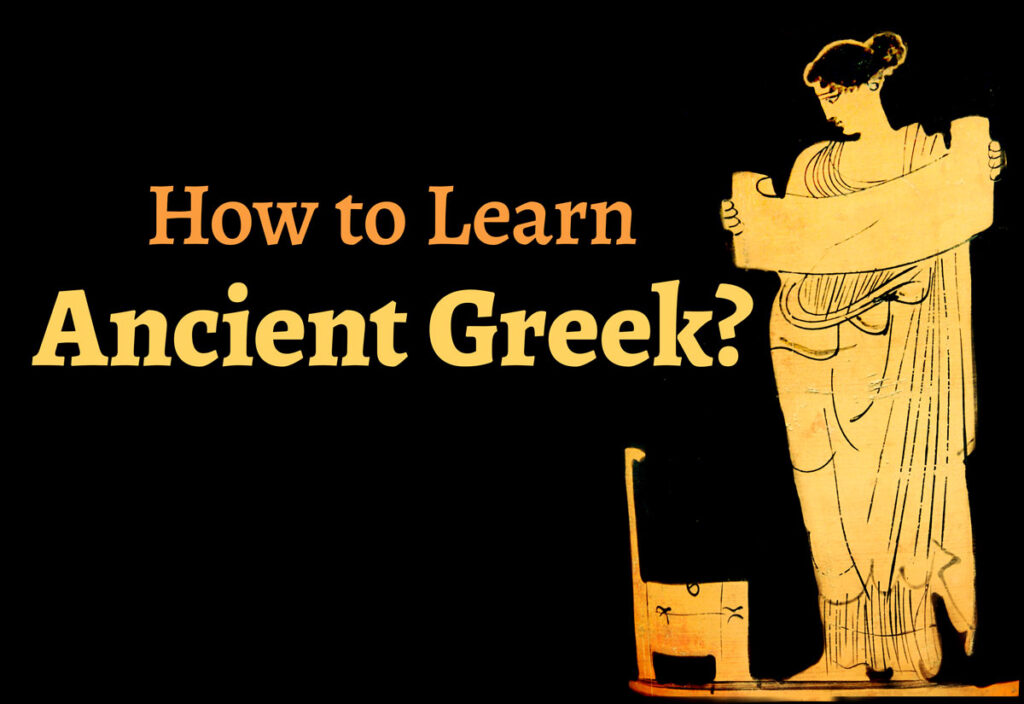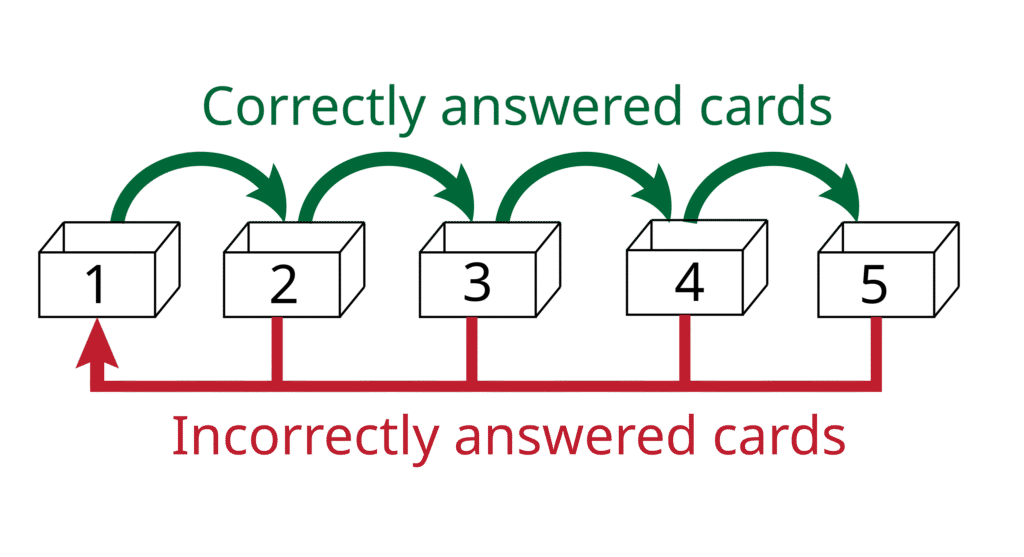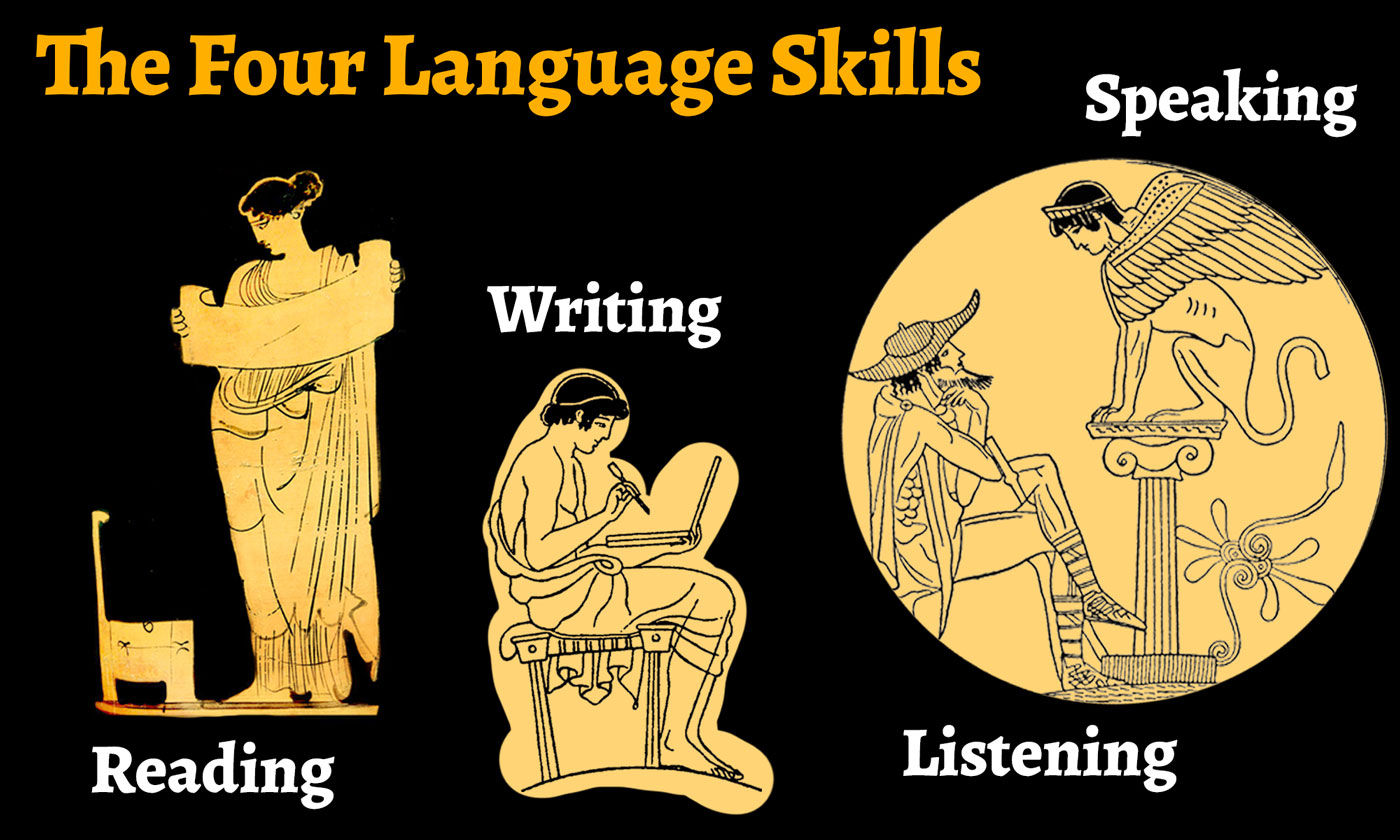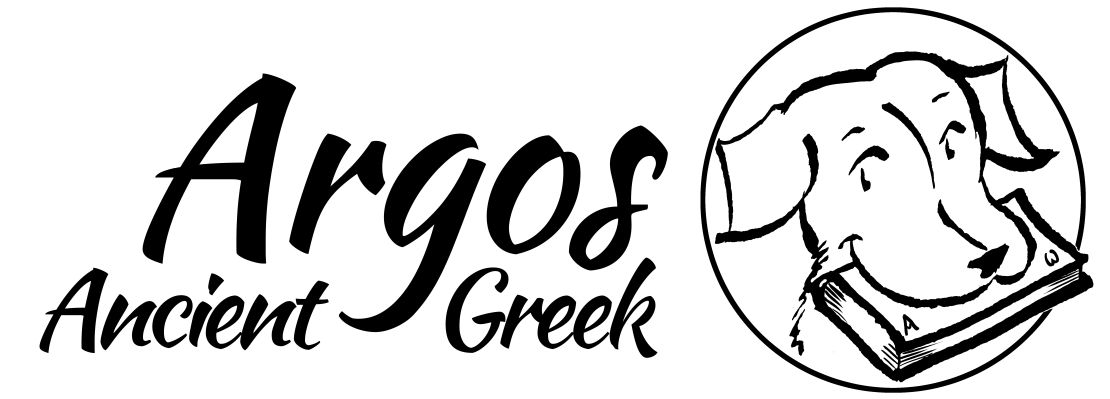
By Jenny Teichmann
I have a friend who is a polyglot. He has learned seven languages to incredible fluency: And Ancient Greek, he says, was by far the most difficult one (followed by Czech—no offense to our Czech friends 😉). I had the same experience when learning Ancient Greek at university: On the first day, we were about 30 students in the class. On the last day, one year later, we were four. All the rest had dropped out.
So how can you learn Ancient Greek without becoming a casualty?
Personal Story: How I Learned Ancient Greek
I will give you my personal story first and will then make some general recommendations.
Phase 1: Learning Greek the German Way
I studied Ancient Greek at a German university. We had to learn huge amounts of grammar and vocabulary in a short amount of time, and I quickly realized that I would need to tackle this task systematically if I didn’t want to drown. So I did some research and found a system that is used by law and medical students to memorize thousands of legal paragraphs and human body parts: the Leitner system.
The Leitner system is (as the name suggests) very systematic and thereby delighted my German soul. Here is a short description of how it works (feel free to skip if your soul does not delight in systematic thoroughness):
The Leitner System
The Leitner system is based on spaced repetition. All you need is:
- a box with five compartments,
- some flashcards.
On the flashcards you write all the vocab and grammar you want to learn. Put the cards into the first compartment. Keep writing cards until the first compartment is full. Take out some of the cards from there and review them.
Did you remember the answer? Then the card goes into the second compartment.
You didn’t remember the answer? Then the card stays in the first compartment.
Keep writing new index cards and reviewing your first compartment whenever it gets full. One day, you will have remembered so many words that your second compartment will now be full: Start reviewing some cards from there.
Did you remember the answer? Then the card moves on into the third compartment.
You didn’t remember? Then the cards goes back into the first compartment.

This process continues until a given card has successfully gone through all five compartments. This card has made it! It has been succesfully stored in your long-term memory. You will be able to recall it for years to come, even if the Spanish inquisition were to put thumbscrews on your hands.

By the way, for a digital version of the Leitner system, you can check out this post:
I used the Leitner system to learn by rote hundreds of vocabulary items and grammatical forms. It gave me a great foundation in a short amount of time—or so I thought.
Phase 2: Emerging Doubts
When I came closer to the end of my university studies, slowly, slowly an uncomfortable truth started to dawn on me: Even though I had put in a lot of effort memorizing all these flashcards, I could still not just open an Ancient Greek book and simply read it (which had always been my goal). The most I could do was painstakingly translate small chunks of an original text. That was not what I had signed up for!

Worse still, I started to suspect that not even my professors could read Greek and Latin fluently (most of them seemed to rely on translations and were too busy writing scholarly articles anyway—in English, of course, or German).
Around the same time, a new student appeared in our classes. He had just come out of Italy, from a school where they had spoken only Latin and Ancient Greek for a whole year. He knew both languages extremely well, seemingly even better than my professors. What he told us just blew my mind: You can actually SPEAK dead languages? (A thought that, seriously, had never before occurred to me.)
I immediately immersed myself into this new world of spoken Latin and Ancient Greek, I took a class, made new friends, and found, to my relief, that I could actually activate my passive knowledge quite well (so all those years of rote learning hadn’t just been a waste of time).
Phase 3: Never Stop Learning
If you asked me today, I would say that I am still learning Ancient Greek. I learn by teaching, writing my own books, talking with friends and, yes, reading (not translating 😉).
So have I reached my goal of being able to just open an Ancient Greek book and read it?
Sort of. Some authors are easier for me, others more difficult. I still have to look up words, sometimes more often, sometimes less so. Ancient Greek is just so vast that it feels like a never ending journey—and this, I would say, is actually part of the fun. Or as Solon put it:
Γηράσκω ἀεὶ πολλὰ διδασκόμενος.—Σόλων
I grow old always learning new things.—Solon
Learning Ancient Greek: A Step by Step Guide
If you are just starting out, here are some steps I would recommend you take.
First Step: Choose Your Dialect (Homeric, Attic, Koine)
“Ancient Greek” is a broad term: The language existed for more than two thousand years and in many different places around the Mediterranean. You can’t learn all of these at once, so your first step should be to ask yourself:
“What do I want to read?”
Focus on the dialect your favorite literature is written in: After mastering one dialect, you can expand your knowledge into other dialects and genres.
| Author | Dialect |
|---|---|
| Homer, Hesiod | Homeric/Epic |
| Sappho | Aeolic |
| Herodotus, Hippocrates | Ionic |
| Plato, Xenophon | Attic |
| Aeschylus, Sophocles, Euripides | Attic/Poetic |
| Septuagint, New Testament | Koine/Biblical Greek |
| Lucian, Plutarch | Attic/Koine |
If you don’t have any preferences, I would recommend you start with Attic since this dialect came to be the “literary standard” that even later authors emulated. It also stands as a (chronological) bridge between Homeric Greek (ca. 800 BC) and Koine Greek (ca. 300 BC-400 AD), so Attic can be a good starting point from where to expand into earlier or later Greek.
Second Step: Find a Teacher or Course
Ancient Greek is a complex language that differs a lot from English or other modern languages. I have know only a handful of people who were able to teach it to themselves: For most people, finding a teacher or course will be the best option.
Benefits of having a teacher (vs trying to teach yourself)
A good teacher …
- guides you & organizes the material,
- keeps you on track,
- points out your mistakes,
- knows a lot more than you (even things you didn’t know that you don’t know),
- can be a source of inspiration & motivation.
Where do you find an Ancient Greek course or tutor?
Ancient Greek is taught at many major universities but there are also great courses online. Some places you can check out:
Third Step: Practice, Practice, Practice
In addition to taking classes, you should also practice on your own. Try to make progress in all four areas of language learning:
- Reading
- Writing
- Listening
- Speaking
Now, I know some of you will object and say:
“But Jenny, if I just want to read Ancient Greek, why should I bother with writing, listening, and speaking?”
Because this is how human language learning works. If you want to learn Ancient Greek as a language (not as a mathematical puzzle), you will see for yourself the benefits of a holistic approach: Practicing to write, speak, and listen will improve your reading comprehension, too.

Here are some suggestions on how you can practice each of the four skills.
Reading
It can be difficult to find beginner friendly reading material in Ancient Greek, so I have put together some ideas here:
You can also check out my books, which I wrote specifically for beginning to intermediate students of Ancient Greek:
Writing
This can be a great way of deliberate practice since it forces you to slow down and really think about the language and how it works. You can try journaling in Ancient Greek, for example, or you can do reverse translations. For more ideas, check out this blog post:
Listening
Listening practice for a dead language like Ancient Greek can be tough to come by, which is why I created YouTube videos as well as a podcast in Ancient Greek.
Here is a blog post with more suggestions on why and how you should listen to Ancient Greek:
Speaking
For speaking practice, you can attend online classes that are held in Ancient Greek. Ideally, you will meet there some friends with whom you can continue to practice. If you don’t have anybody to talk to, you can of course also talk to yourself or record yourself.
Final Words
Whatever you do, you will need to find your own path and see what works for you. Language learning is no one-size-fits-all. Learning Ancient Greek takes time and dedication but it can also be immensely rewarding. It is a unique way of connecting with the past and transcending day-to-day life. Give it a try!





That was an awesome blog! Very neat to read about Jenny’s journey with Greek. I am on a similar journey and I am thankful she is here as a teacher to guide me and others. I hope to one day just read a Greek text as well. Glad to know I am not alone on the journey too and that there are others part of this literacy and learning community.
Thank you, John! I know how eagerly you are learning Ancient Greek, so I am sure you will make good progress! 😊